
Global Economy and Global Challenges
The 2nd Bund Summit took place on 23rd – 25th October, 2020 in Shanghai. The event was organized by China Finance 40 Forum (CF40) along with partner institutions, and invited senior policymakers, executives of large financial institutions and academic leaders worldwide to share their insights on key global economic and financial issues.
The 2020 Bund Summit came amid the ongoing spread of COVID-19 and most international speakers joined the event remotely as a result of international travel restrictions. The three-day event included four general assemblies with each focusing one topic.
The theme of General Assembly I, started in the morning of Oct. 24th, was “Global Economy in Transformation: Crisis, Reform and Opening-up”, moderated by Wang Haiming, CF40 Secretary-General. Wang Qishan, Chinese Vice President, LI Qiang, Secretary of the CPC Shanghai Municipal Committee, and Chen Yuan, Chairman of CF40 Executive Council and Vice-Chairman of 12th National Committee of the Chinese People’s Political Consultative Conference gave welcome remarks.
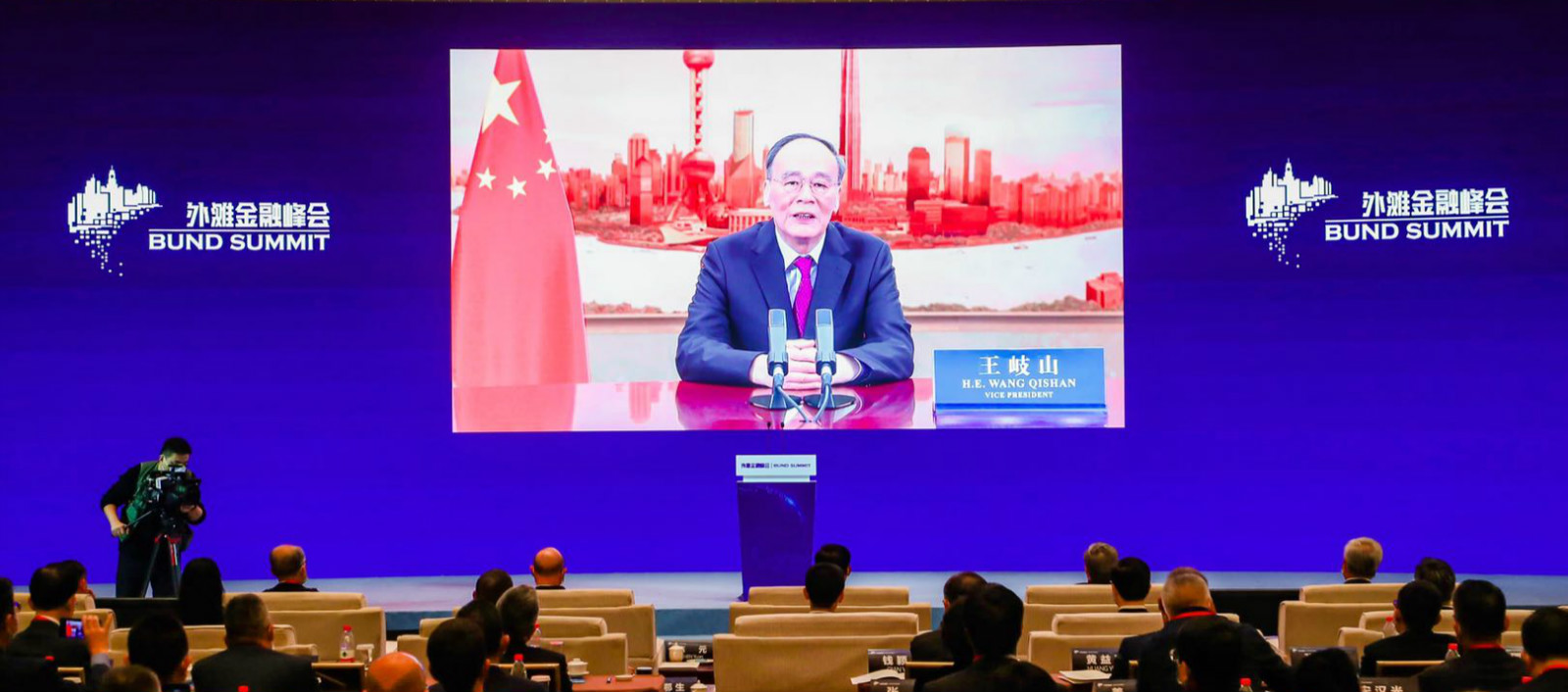
In his remarks, Wang stressed that it is important to seize new opportunities amid crisis and China should accelerate the formation of the new development patten with domestic market as the main body and with domestic and international markets reinforcing each other. He also highlighted three tasks for the financial sector under the new situation – first, finance should serve real economy; second, prevent and resolve financial risks; third, place equal importance to financial innovation and regulation.
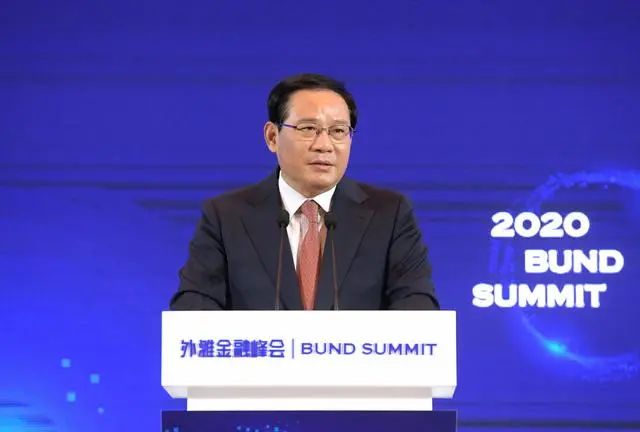
Applauding the progress Shanghai had made so far in building the city into an international financial center, Li urged to strengthen the city’s role in global resource allocation, establish financial innovation pilot zones, create financial ecosystems, strive to achieve a higher level of opening of the financial sector and forge the development of Shanghai international financial center to a higher level.

According to Chen, a new round of globalization is being formed at present driven by digital economy, which will reshape business models and ideas at micro level and international division of labor with the increasing importance of data as a factor of production. He added that further discussion is needed regarding the cooperation among new industries so as to inject dynamism into the world economy. He also stressed that the “dual circulation” new development pattern does not mean that China will develop its economy by “closing its door”; instead, it aims to promote better interaction between domestic and international markets and smooth the circulation of international economy through a higher level of opening-up.
Keynote speakers of General Assembly I included Zhou Xiaochuan, former Governor of the People’s Bank of China, Yi Gang, Governor of the People’s Bank of China (PBOC), Jin Liqun, President of Asian Infrastructure Investment Bank, Zhang Tao, Deputy Managing Director of the International Monetary Fund (IMF), Tu Guangshao, Executive Chairman of the Bund Summit Organizing Committee, Executive Council Member of CF40 and Chairman of the Executive Council of Shanghai Finance Institute, Jack Ma, Co-chair of the UN High-Level Panel on Digital Cooperation, Ray Dalio, Founder, Co-Chief Investment Officer and Co-Chairman of Bridgewater Associates, Adam Posen, President of the Peterson Institute for International Economics (PIIE), and Joseph Stiglitz, University Professor of Columbia University and Nobel Laureate in Economics.
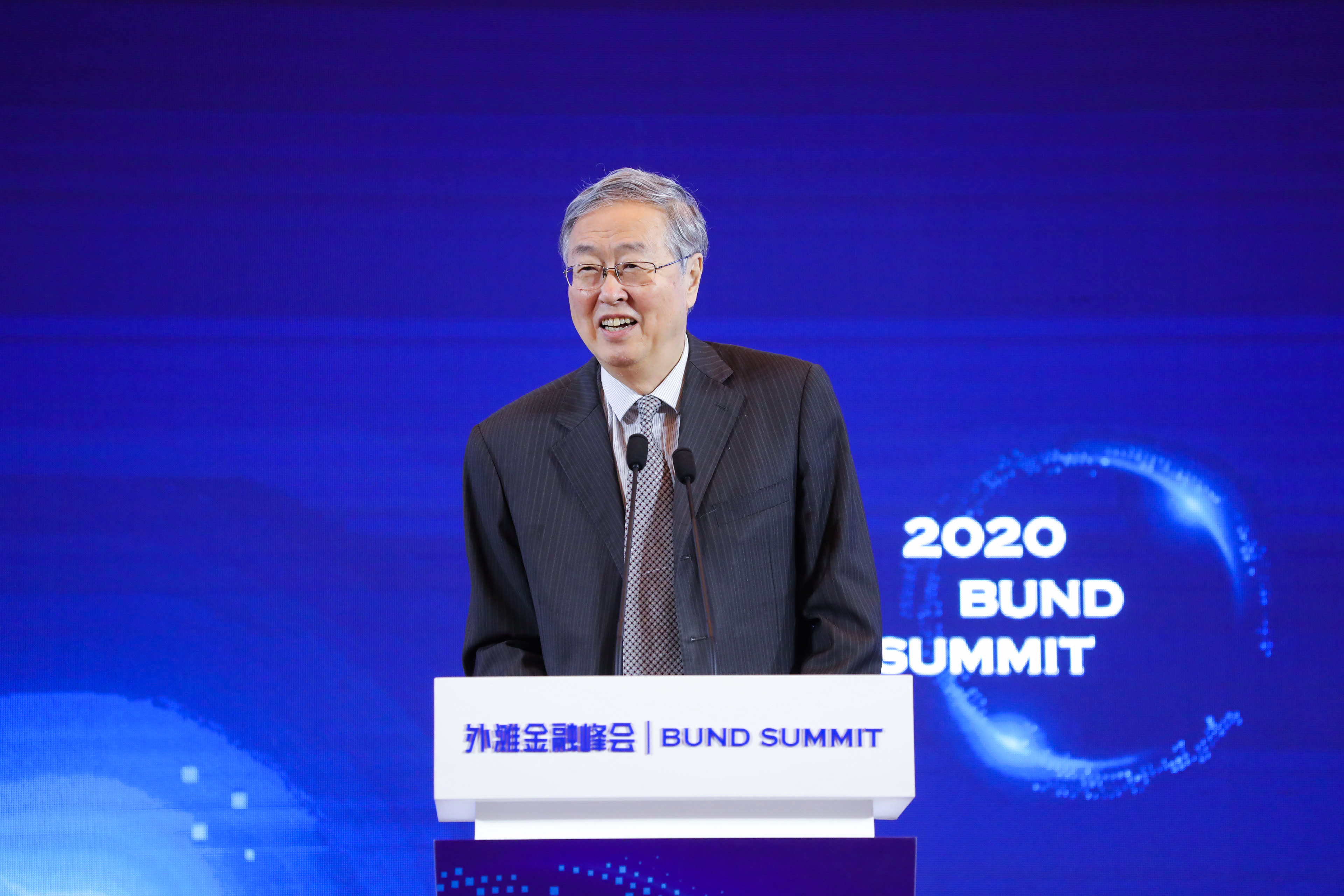
Zhou delivered a keynote speech in which he discussed the debt problem in Belt and Road countries and denied that the B&R Initiative is a “debt-trap diplomacy.” In fact, China has been actively participating in the Debt Service Suspension Initiative of G20 amid the COVID-19 pandemic which has aggravated the debt burden of many developing countries, according to Zhou. He also said that the current debt relief offered does not necessarily mean debt restructuring when the pandemic is over and different approaches should be applied based on the nature of debt in different countries.
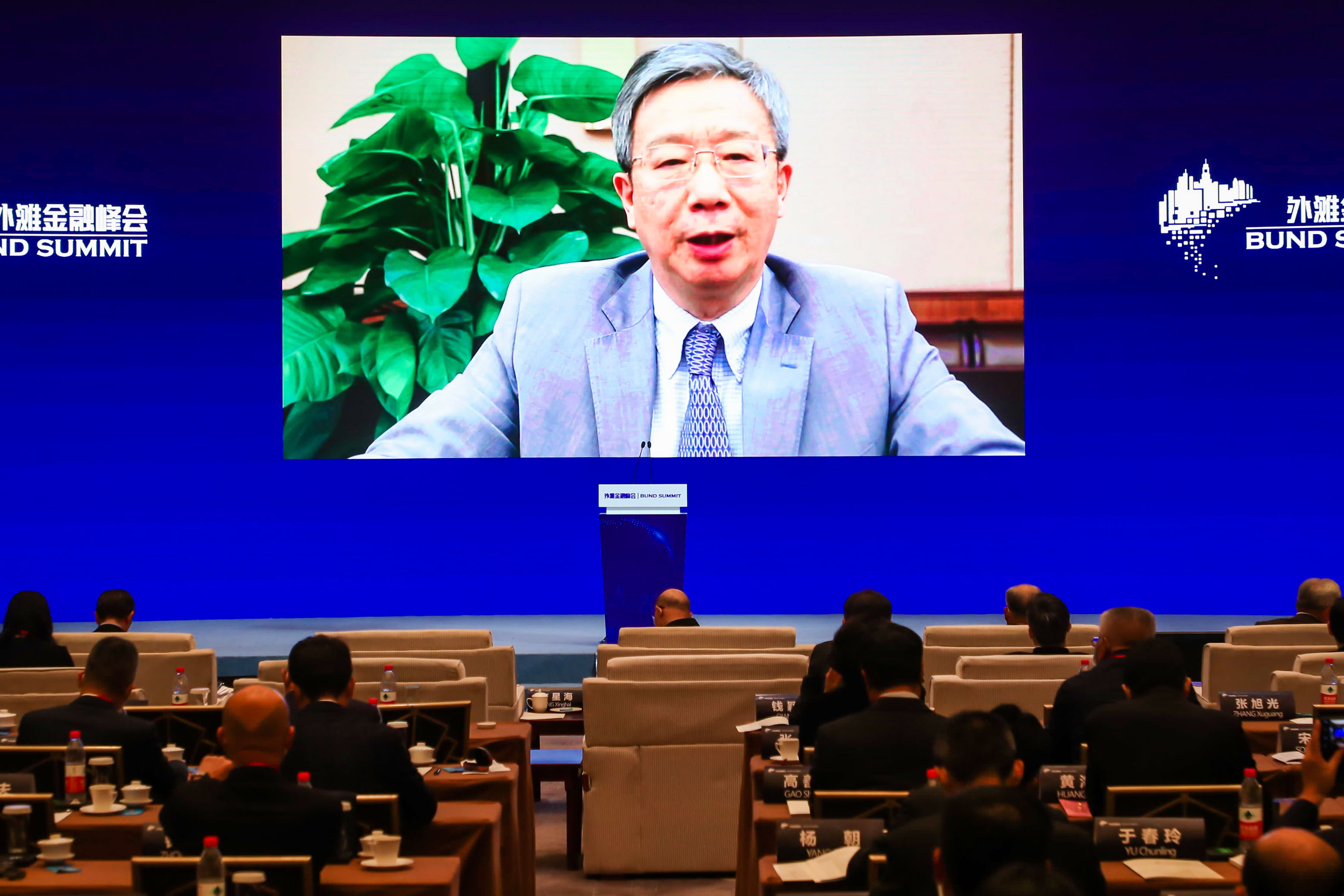
Yi talked about how China should further open the financial sector under the “dual circulation” new development pattern. First, fully implement the pre-establishment national treatment and negative list system and promote change in the thinking and model of opening. Second, make coordinated efforts to open up the financial services sector, reform the RMB exchange rate regime, and promote the international use of RMB. Third, prevent financial risks while accelerating the opening of the financial sector.

Jin noted that “the current economic downturn has little to do with normal business cycle and the economic upswing is unlikely to occur prior to the availability of safe and effective vaccine.” He pointed out two lessons that can be drawn from the pandemic – first, deficiency in health care is the weakest link on the chain of the economy; second, countries need to “probe the intricate pattern of relationship between climate and health hazards.” He also called for countries to reconsider development approaches to shift to a new development paradigm that is “climate-smart and ecosystem-smart.”

According to Zhang, although global economy is now recovering from the pandemic, the recovery process will be slow and challenging. He said while China’s economy is recovering rapidly, many emerging markets and developing economies are faced with a future filled with unpredictability and uncertainty. He suggested that Asian countries continue to implement supportive monetary and financial policies in the face of a severe output gap and low inflation level, while in the long run, the recovery must rely on smarter, greener and more inclusive measures, he added.

Reviewing the history of the development of Shanghai as an international center, Tu said that the next step of this national strategy put forward in the 1990s is to develop the 3.0 version of the city as an international center which should be able to adapt to a changing domestic and international environment, and serve the “dual circulation” development strategy. He also stressed that Shanghai would by no means be a “copycat” of New York or London, but should be comparable to these cities.
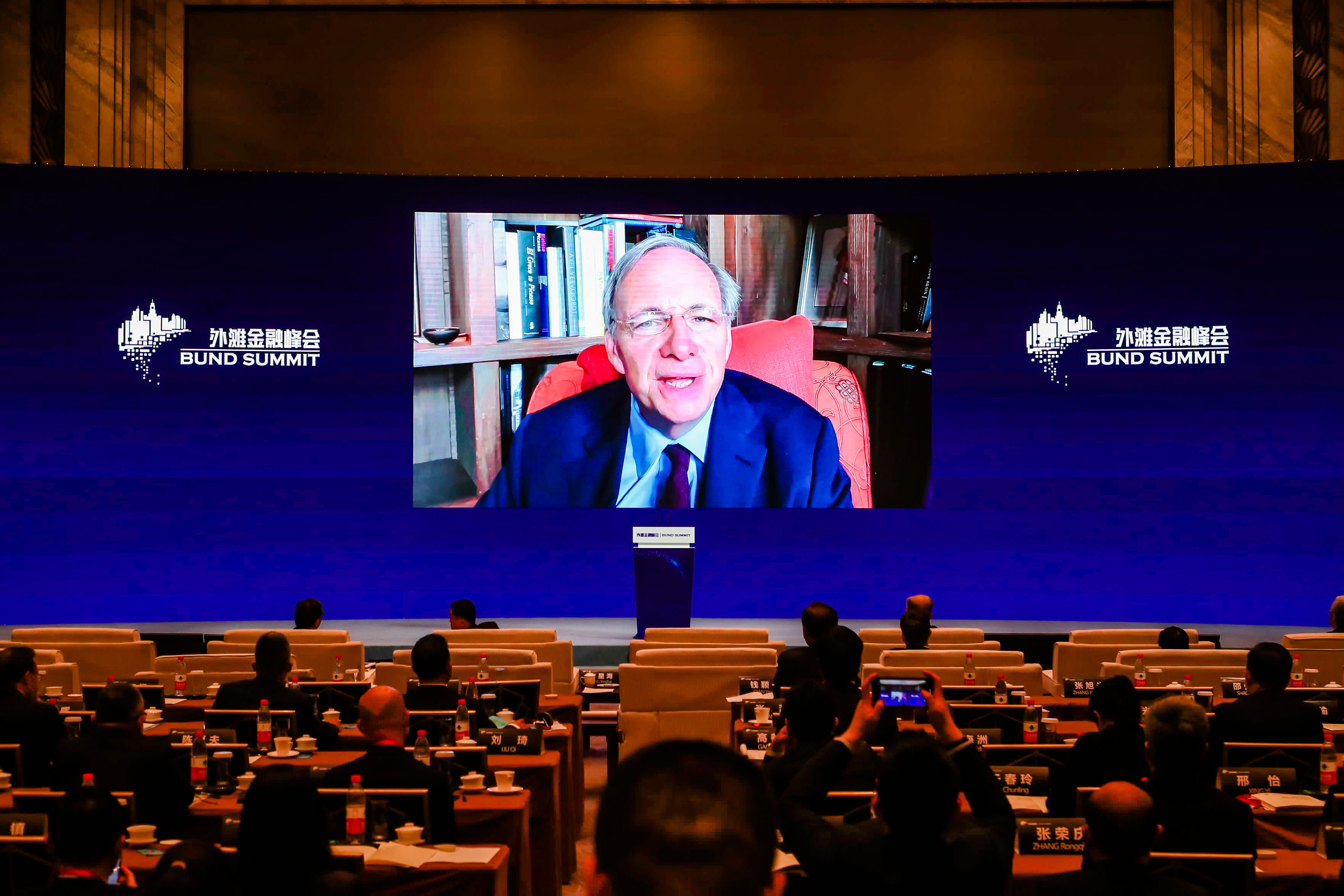
Dalio talked about three “big forces” that are reshaping the world today, namely the long-term debt and money cycle, the domestic wealth and political gap cycle, and the rise of a great power to challenge the existing world power. He said that due to the wide use of the US dollar around the world and its dominance of the clearing system, the US and the US dollar still had a lot of power which, however, could be reduced in the long run as people and countries seek ways to reduce risks arising from too much US dollar-denominated debt. He also noted that it is now the right time for China to internationalize the RMB and develop financial centers, which can be supported by the ongoing opening of China’s capital market and the strong fundamentals of investing in China.

Posen talked about why central banks around the world have been calling for better coordination between monetary and fiscal policies and more fiscal policy amid the COVID-19 pandemic, and pointed out several reasons behind, including the inability of monetary policy in pushing forward a recovery from the COVID-19 pandemic which compared with the global financial crisis has more production and behavioral factors, the overwhelming downward pressure on the velocity of spending, continued mismanagement of public health aspects of the pandemic, and risk aversion etc. He also said that there could be a weakening in the US financial role in the next couple of years, which could “be accelerated if the US government engages in unilateral financial sanctions and overuse its powers of control over the world’s financial system.”

Stiglitz talked about two issues essential to ensure a strong recovery in the emerging markets and the developing countries. The first issue is the issuance of special drawing rights (SDRs). He called for the world to unite to support a very large issuance of SDRs and countries like the US and China to lend their SDRs to developing countries and emerging markets in desperate need. The second issue is that countries should cooperate and create a sovereign debt restructuring mechanism to solve the debt problems around the world today.
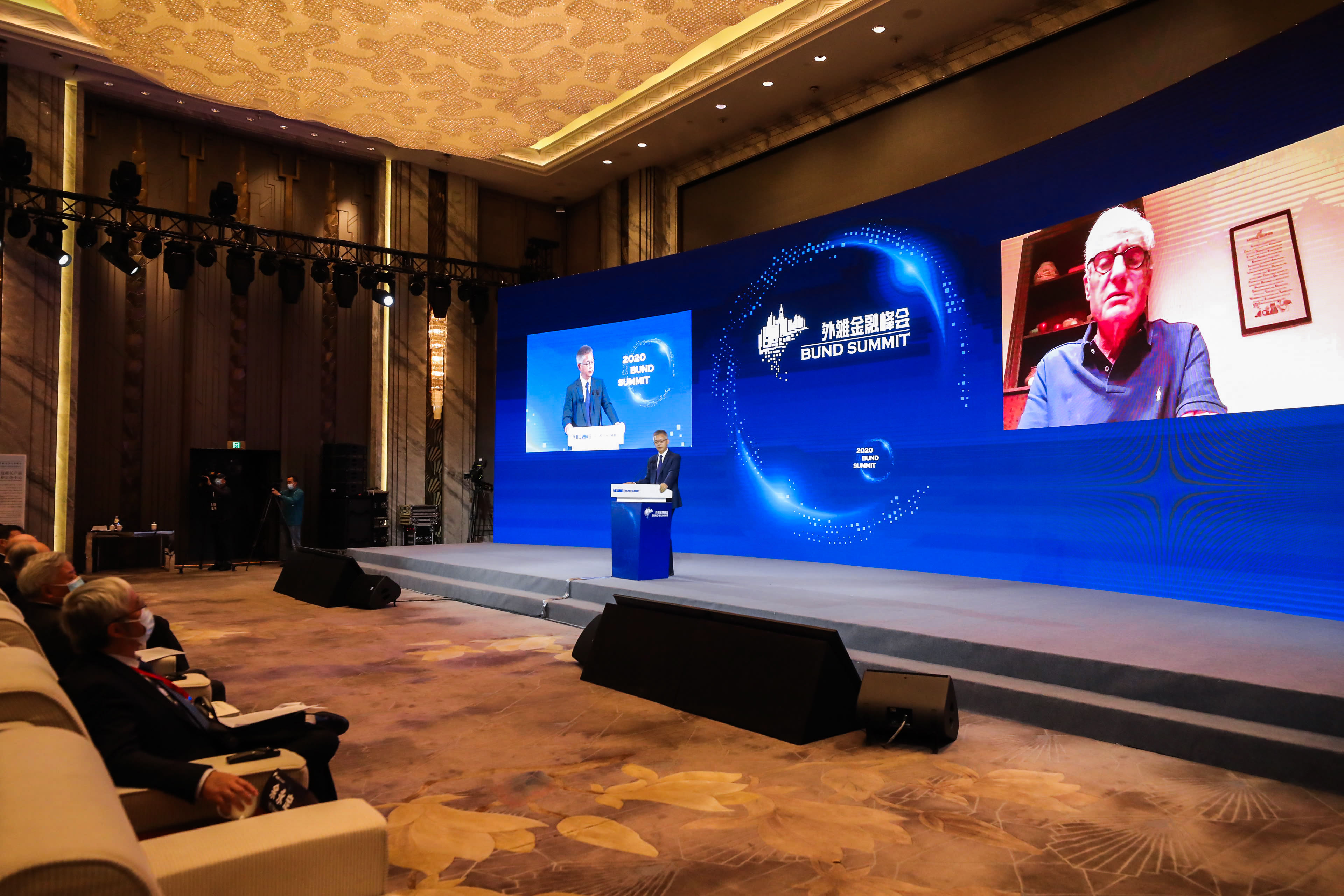
General Assembly I also featured an international dialogue between Robert Rubin, former US Treasury Secretary, and Huang Yiping, Chairman of CF40 Academic Committee and Director of Institute of Digital Finance of Peking University, who discussed such issues as fiscal deficit, the US economy, as well as China-US relationship. According to Rubin, the US now needs to have very rapid and large fiscal stimulus to tackle the pandemic, which though should not be funded by fiscal deficit. Being asked about the prospect of the US dollar, Rubin said while in the short run, the dollar would fluctuate due to various variables, in the long run, the dollar would reflect the fundamentals of the US economy which would be strong supported by favorable factors like rule of law, vast natural resources, great university systems, dynamic society and culture etc. Regarding the China-US relationship, Rubin noted that the 21st century will be enormously affected by whether the two largest economies could have a constructive relationship built in areas like climate change, economic norms, dealing effectively with nuclear weaponry etc. or whether they would have an adversarial relationship.
Held in the afternoon of October 24, General Assembly II was themed “Supply Chain, Climate Change and Pandemics: Challenges Facing the Global Financial System and Coping Strategies” and moderated by Qian Yingyi, President of Shanghai Finance Institute and Former Dean of School of Economics and Management of Tsinghua University.
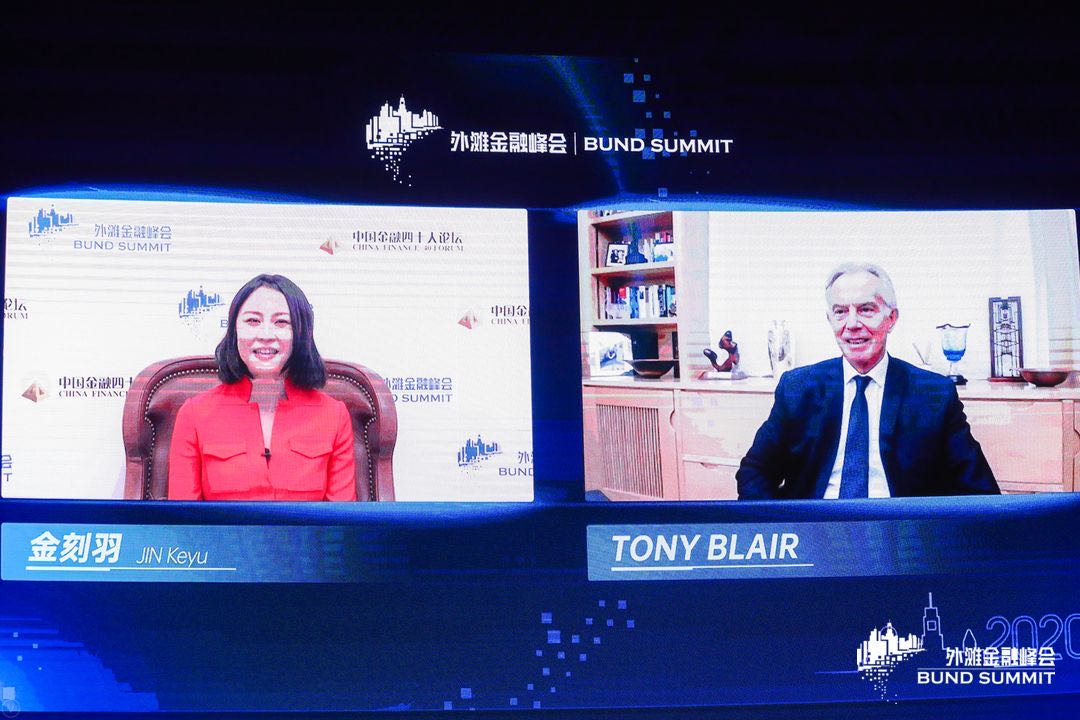
Featuring two international dialogues, the session started with the dialogue between Tony Blair, former Prime Minister of the UK and Jin Keyu, Associate Professor of Economics at the London School of Economics. The two shared discussions on issues including the importance of technology in coping with various challenges at present, global leadership, and the future of China-UK/EU relationship etc. According to Blair who has urged governments to embrace technology to fight pandemic, it’s important for governments to understand the technology revolution today, master technology, and harness it. Keyu shared China’s experience in using technology which has not only been used as policy tool to fight the pandemic but also help with economic and financial recovery. Regarding the reason for the lack of global coordination and leadership today, Blair said it’s more of a lack of will than incapacity, partially as some countries have become very “introspective” focusing more on their own internal affairs. He noted that it’s important to recognize that we are now in a new world and reserve some space for cooperation upon issues like climate change, global pandemic and stabilizing the world economy etc. He also said that China-US relationship is the most important bilateral relationship in the 21st century and it is in the interest of EU to play a part in shaping a more productive dialogue between the two countries.

The second dialogue was between Jean-Claude Trichet, former President of the European Central Bank, and Yu Yongding, CF40 Advisor, Chairman of Pu Shan Award Academic Committee and Academician of the Chinese Academy of Social Sciences. They both agreed that the unconventional and highly expansionary monetary policies introduced by central banks around the world to tackle the shock of the COVID-19 pandemic have been appropriate protecting economies from falling into a dramatic depression. According to Trichet, advanced economies are faced with a “dual challenge” part of which had been existing since the global financial crisis in 2008, and will have to address issues like low productivity growth and rising inequality in the long run to avoid bigger “catastrophe”. Regarding China’s economic recovery, Yu said that China should seek to pursue higher growth rate for the sake of job creation, to which end it should use more expansionary fiscal and monetary policies.
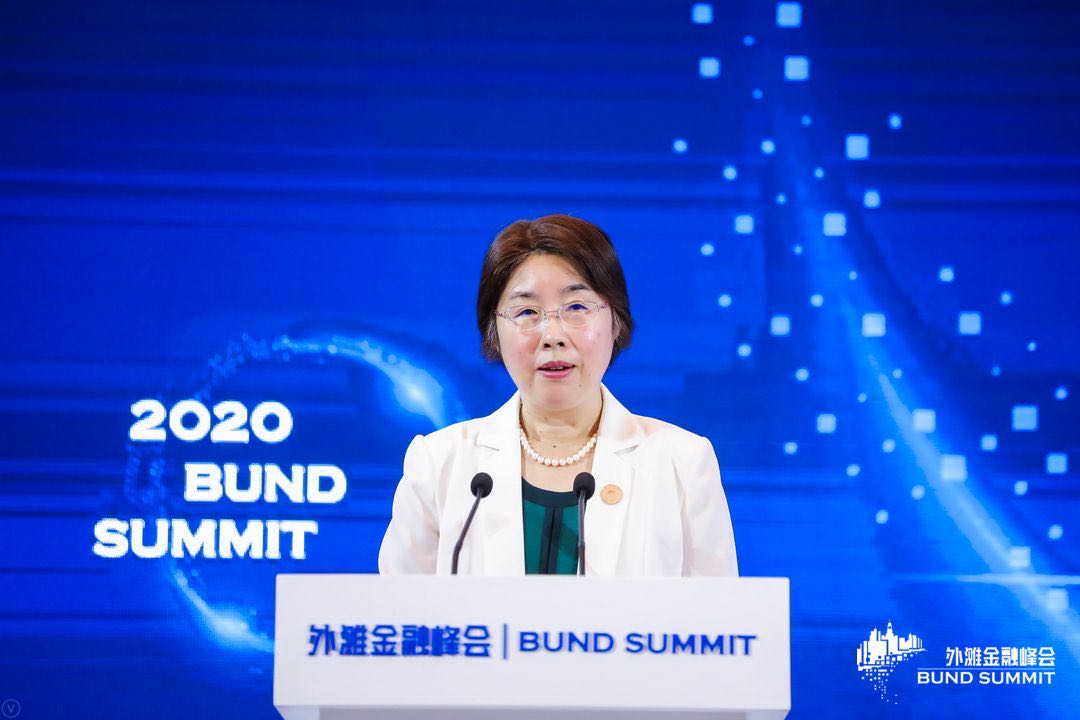
In her keynote speech, Zou shed light on the role of fiscal policy in supporting financial stability and pointed out five aspects essential to the prevention of systemic risk in the global financial markets – first, balance counter-cyclical adjustment and financial stability; second, coordinate financial regulation and economic development; third, balance the development of fintech and financial safety; fourth, understand the relationship between climate change and the prevention of financial risks; fifth, deal with the relationship between the short-term problem of rising debt and the long-term issue of development.
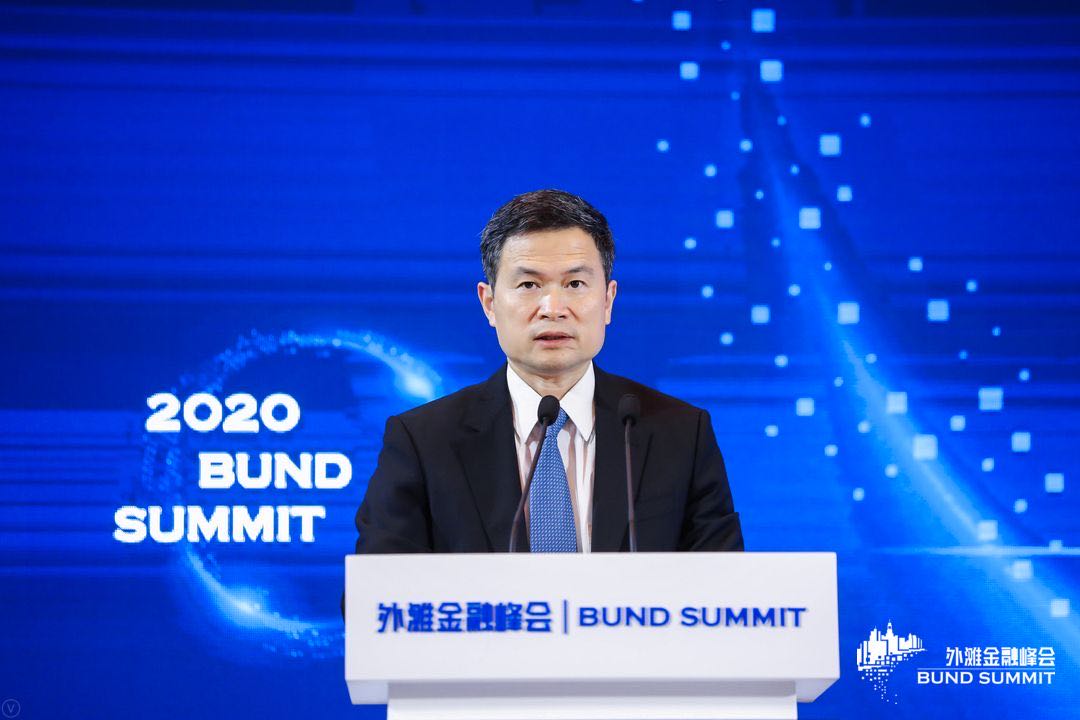
Fang said that the CSRC will further promote the opening of China’s capital market, shifting from partially opening-up to full-scale and institutional opening-up in four major aspects – first, continue to forge the opening of capital market and financial products; second, continuously improve the openness of the securities, funds and futures industry; third, further deepen international regulatory cooperation; fourth, strengthen the regulatory capability in an opening market.
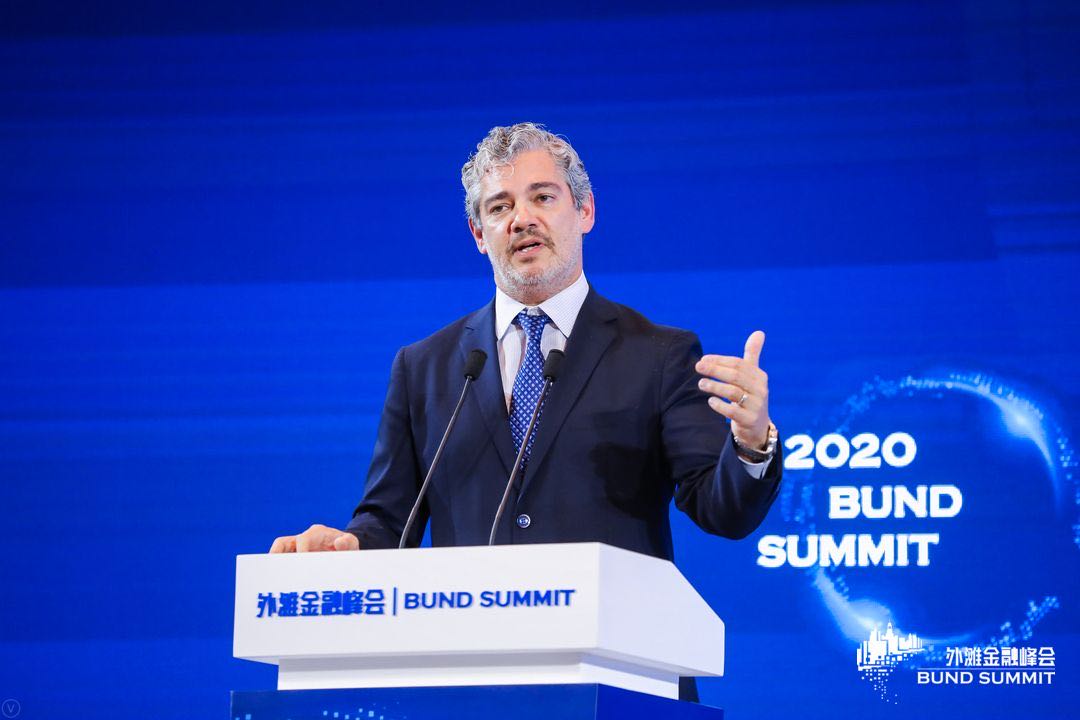
Troyjo pointed out three major characteristics of the new round of globalization in the post-COVID world – first, a change in the tectonic plates of the world evidenced by the rise of emerging countries; second, the rerouting of value chains driven by many factors; third, the rise of “talent-ism” in which talent becomes an important factor of production. He also called for multilateral development banks to play a bigger and more constructive role in the new round of globalization and lead the conversation in terms of development policymaking.

According to Lamy who discussed the impacts of COVID-19 on global trade, the pandemic could impact all the shaping factors of global trade, namely, the global economy, technology, security, the geography of trade, and also domestic trade politics etc. He pointed out two implications of the new situation for China – the first one is the acceleration of the opening of Chinese economy especially in the area of services, and the second one is that China will have to implement quite soon the so called “competitive neutrality.”

Adams mentioned in his speech that the world is now going through the fourth great debt wave of the past fifty years due to factors including low interest rates, a surge in sovereign borrowing with more diverse creditors, the emergence of China both as borrower and creditor as well as borrowing by emerging market corporates. He noted that financial innovations can help address obstacles created by debt and stressed the importance of transparency and accountability for debt sustainability.
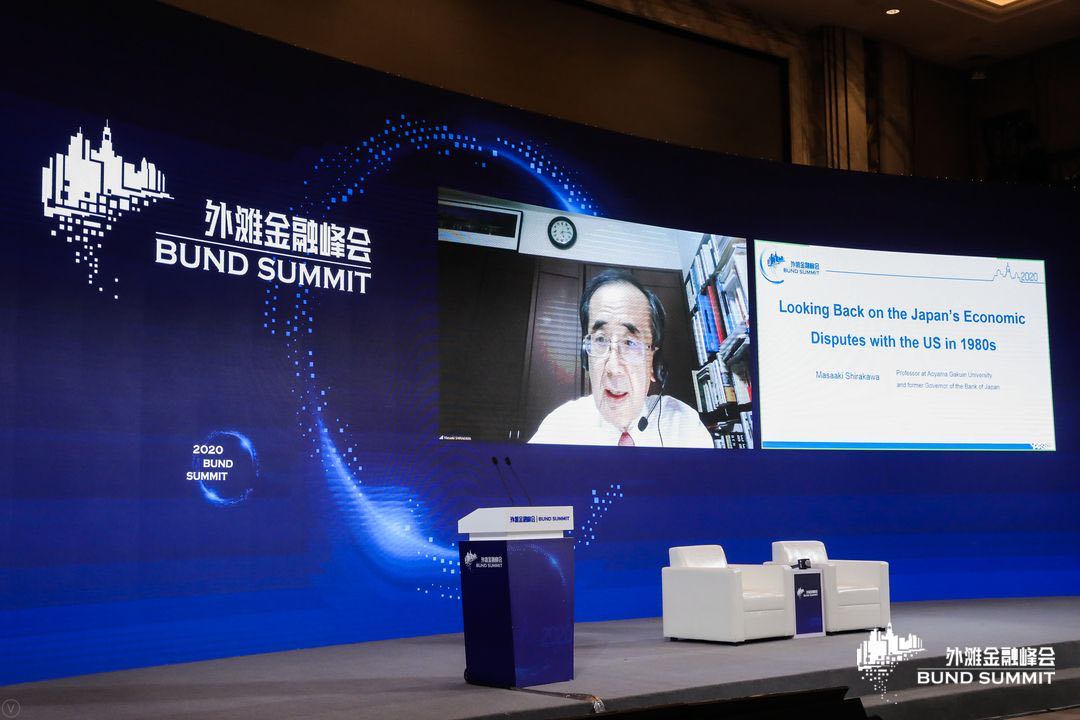
Shirakawa reviewed the economic disputes between Japan and the US in the 1980s and shared his view on three lessons China can draw from the Japanese experiences - first, make strenuous efforts to prevent bubble, or in other words, achieve a sustainable growth; second, monetary policy should not aim at what it cannot achieve; third, countries should not be overly distracted by short-run development and never forget long-run challenge they are faced with.
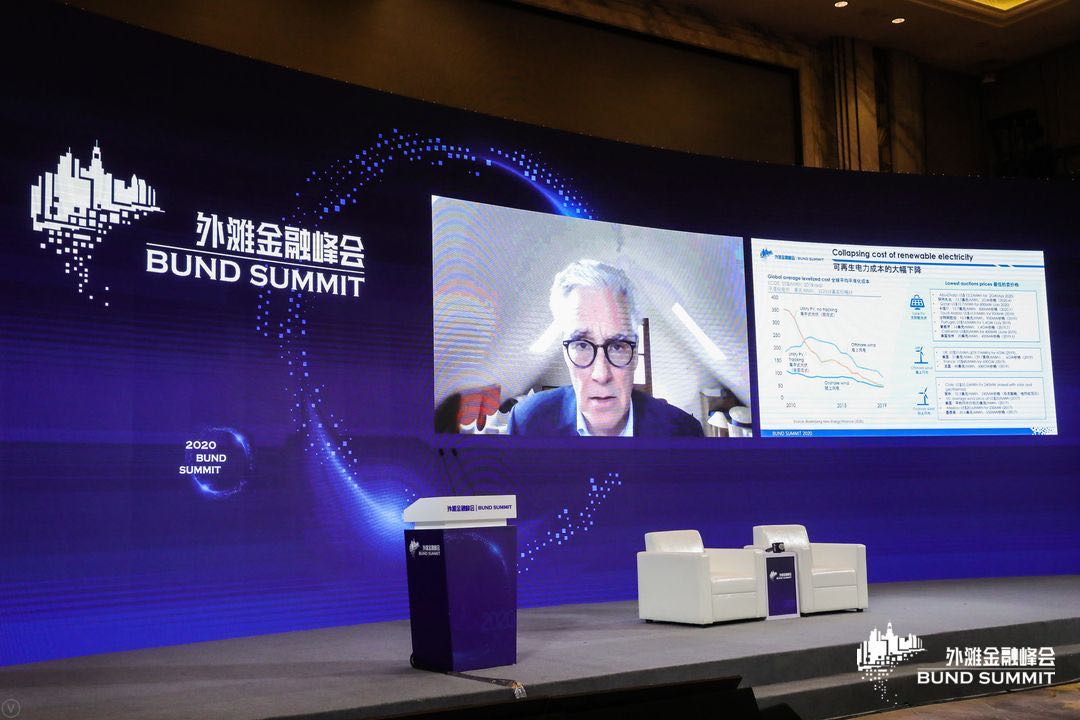
Turner who talked about how a country should drive economic growth while achieving a zero-carbon economy pointed out four priorities for China to achieve a green recovery – first, accelerate investment in zero-carbon electrification; second, strengthen investment in “new” technology-based forms of infrastructure; third, ensure that investment in traditional infrastructure supports green and energy-efficient urbanization; fourth, promote green consumption with a strong focus on electrification.

Alphandéry discussed how to promote carbon pricing at the international level and the China-EU cooperation in fighting global warming through governed pricing. Noting that increasing the carbon price is crucial for getting rid of carbon, he pointed out two techniques to price carbon. The first is taxing carbon and the second is creating a carbon market. He also added that creating a level playing field between China and Europe based on carbon pricing should be a powerful device to achieve the goal of carbon neutrality.

O’Neill shared his views on the trend of US dollar in the future and noted that the role of the US dollar would likely to become less in coming years considering three combined factors, namely the size of the US economy, the US share and role in world trade, and the role and size of its capital market. But until the currencies of many other countries, particularly emerging economies, can be used more widely than the dollar, the latter will continue to play a disproportionate role in international finance.

In his speech, Sachs discussed “two pillars” which are essential for coping with various challenges which already existed even before the COVID-19 pandemic. The first pillar is stopping the pandemic comprehensively around the world, and the second one is an economic recovery that is sustainable in social and environmental dimension. To this end, countries need to prevent new diseases, transform the energy system to a zero carbon system, have sustainable land use, and have better material use and circular industrial ecology.

Lardy focused his remarks on US-China relations and provides some evidences for the increasing interests of foreign investors in the Chinese capital market. He said that most of the discussion about China-US decoupling has substantially underestimated the depth of the bilateral economic integration between the two countries and failed to consider the real economic costs of decoupling for both countries. In fact, even the trade war or the COVID-19 have not changed the plan of many big American multinational companies to stay in China, according to Lardy quoting a survey by the US-China Business Council. Regarding foreign direct investment, China has been maintaining the same level of inflows as in previous years, but its share of foreign direct investment flows has been rising very sharply amid the pandemic, and despite much discussions about decoupling, China’s integration into the global financial system has actually been increasing, he added.
Digital Economy and Fintech
The second day of the Bund Summit focused on digital economy and Fintech.
Themed “Digital Economy in the Post-Pandemic Era: New Trends and New Opportunities”, General Assembly III was held in the morning of October 25 and moderated by LI Wei, Director-General of the Technology Department at the People’s Bank of China.
The keynote speakers included Fan Yifei, Deputy Governor of PBOC, Chen Wenhui, Vice Chairman of the National Council for Social Security Fund of China, Jason Furman, Professor of Economics at Harvard University, Peter T. Grauer, Chairman of Bloomberg L.P., Jean Lemierre, Chairman of BNP Paribas, Eric Jing, Executive Chairman of Ant Financial and Huang Qifan, Distinguished Professor of Fudan University and former Mayor of Chongqing.
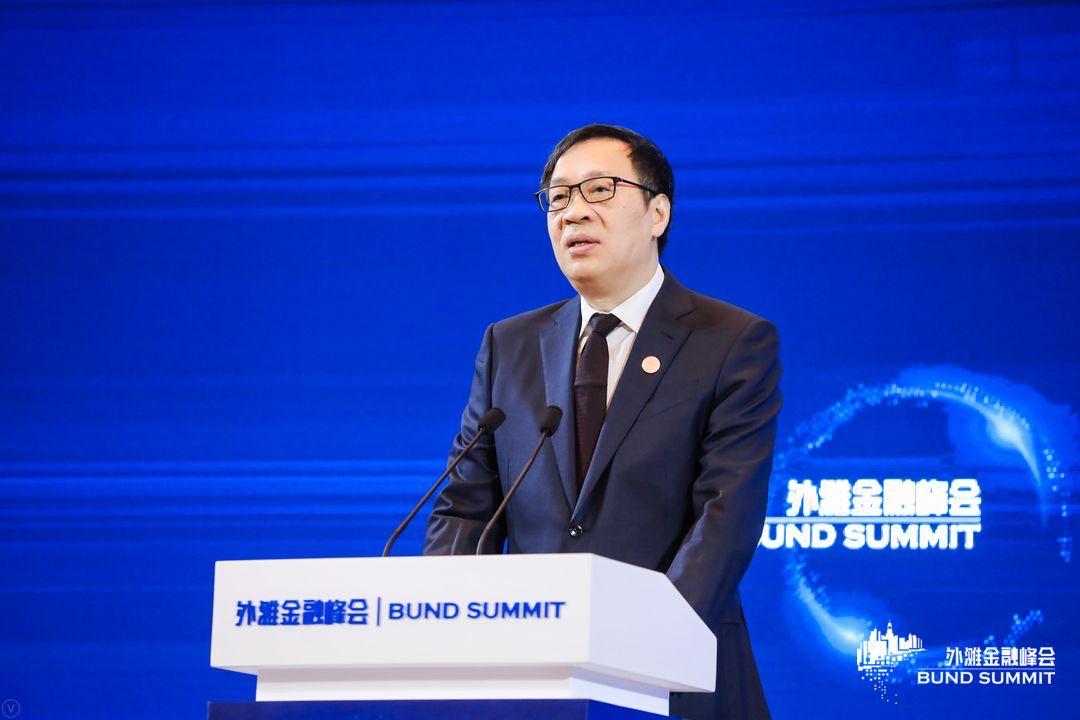
In his speech, Fan said it’s time for China to accelerate the digital transformation of the financial industry and emphasized the necessity to strengthen data governance. He also stressed that during the process of digital transformation, financial institutions should pay close attention to the needs of different groups of customers to improve the inclusiveness of digital finance and to avoid “digital divide.”
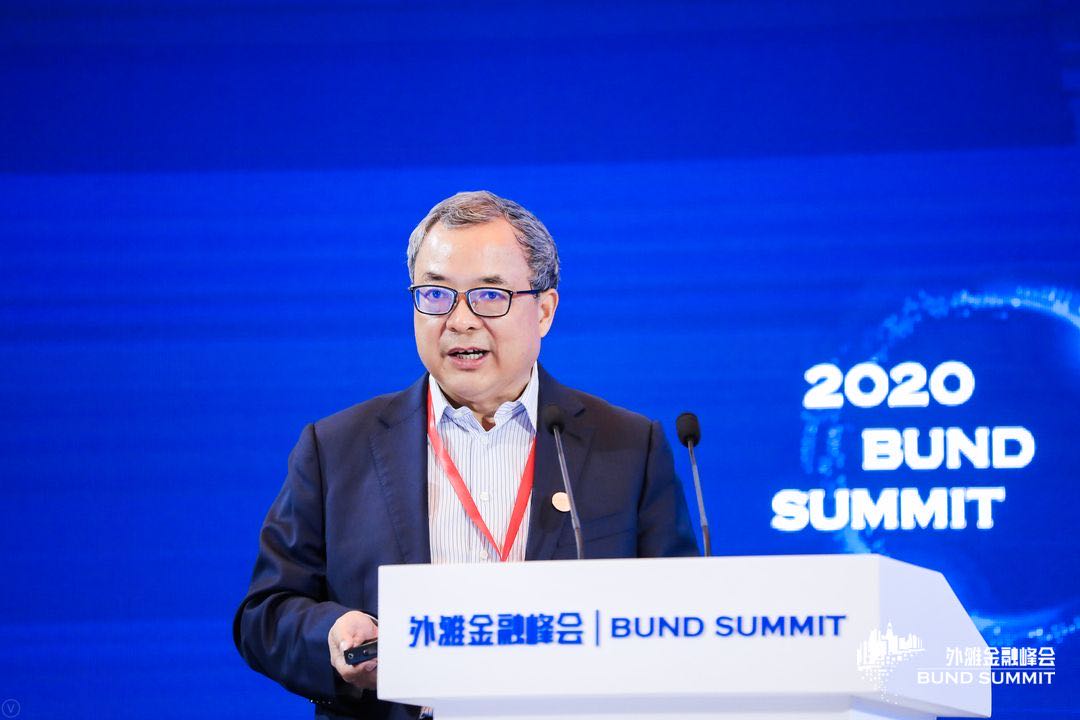
According to Chen, the transitioning of traditional finance to new finance is under way at present. While the core factor of production for traditional finance is capital, that for new finance is data, and this has led to changes in both business models and risk management approaches of financial institutions. He said that traditional financial institutions would have to overcome various difficulties during the process of digital transformation, such as changing the traditional way of thinking on finance and adjusting corporate structure to adapt to new situations.
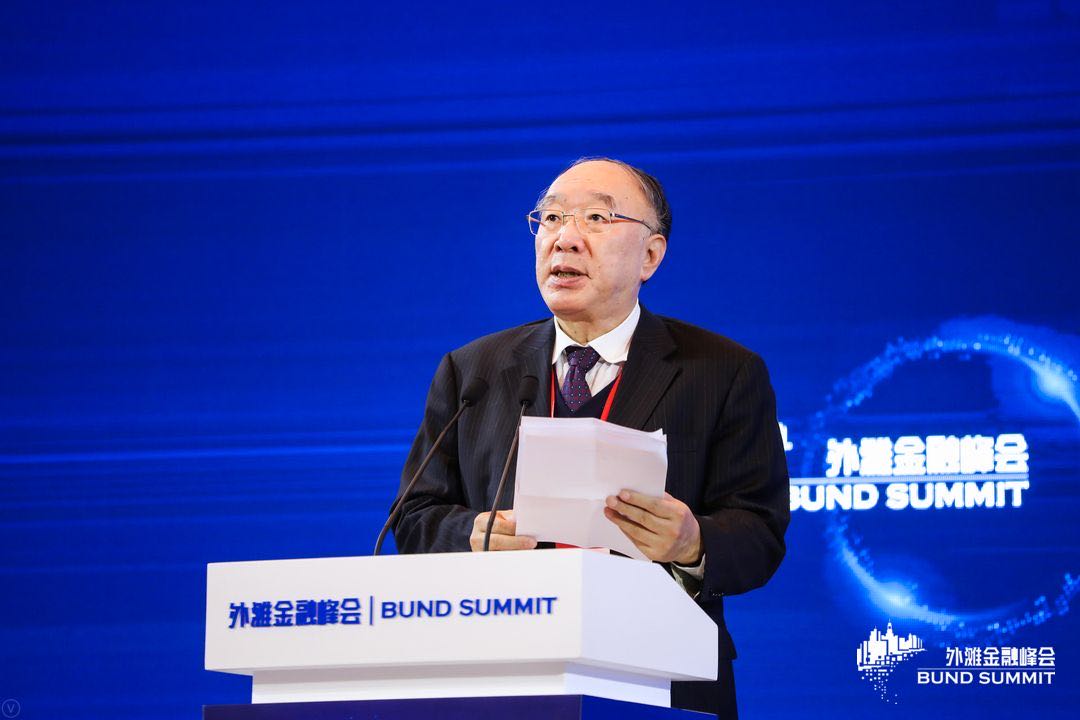
Huang talked about the development path of technology of digital platforms in the context of 5G technology and pointed out that industrial IoT financing would be the next “blue ocean” for the development of Fintech in China. According to Huang, while it is difficult for digital financial institutions to obtain low cost funds as traditional commercial banks do from residents’ savings, they could seek cooperation with commercial banks by transferring information of consumer credit collected from the network of industrial IoT and through due diligence, thereby improving the allocation of resources.
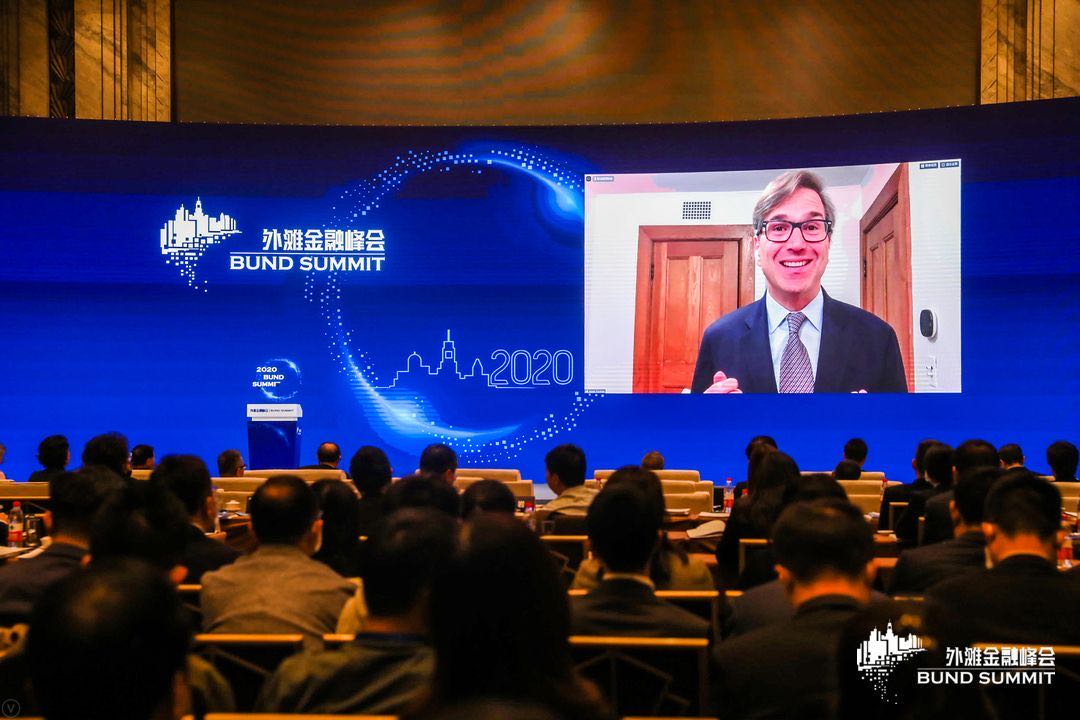
Furman discussed the role of digital economy in driving economic recovery and growth and the prospect of digital economy in the future. He said thinking that there was a need to regulate artificial intelligence and digital technologies was a mistake because “technologies function best with permission-less innovation.” He called for the public sector and public investment to play more role in supporting R&D, and noted that the digital sector would be key to achieving more productivity growth in the future, which would be particularly true if China and the US could continue to learn from and engage with each other as the two leaders of the global economy.
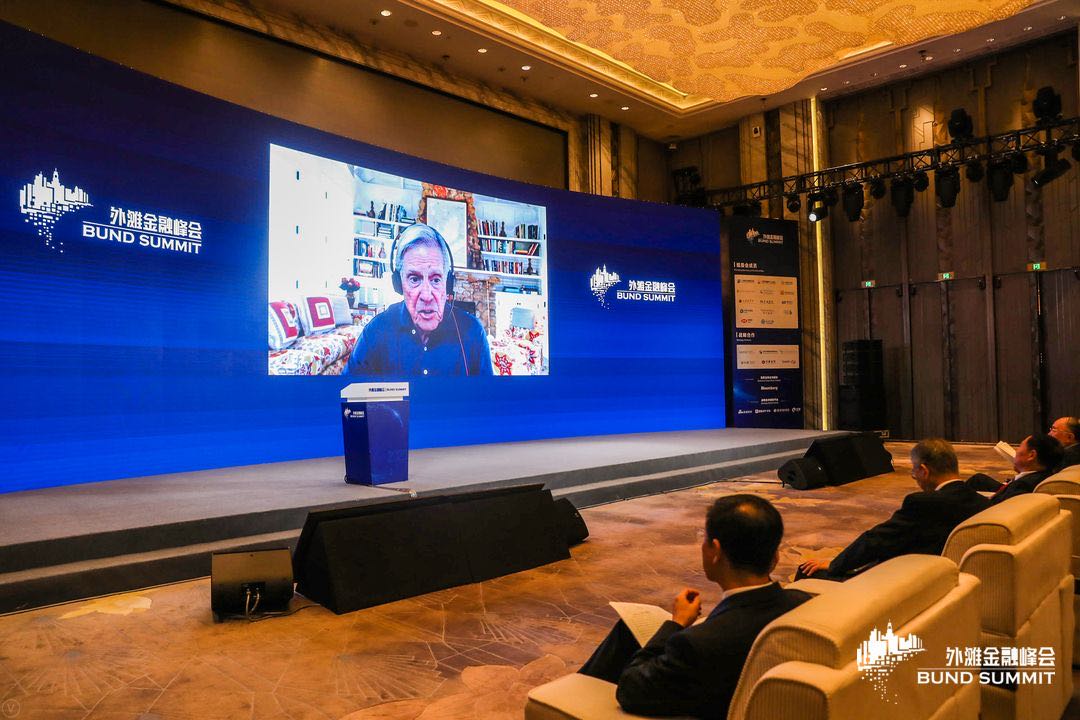
According to Grauer, the financial industry is now experiencing great changes amid the ongoing digital transformation. He called for firms to embrace new technology and governments and regulators to monitor and steward the changes in the financial system to ensure compliance and integrity.
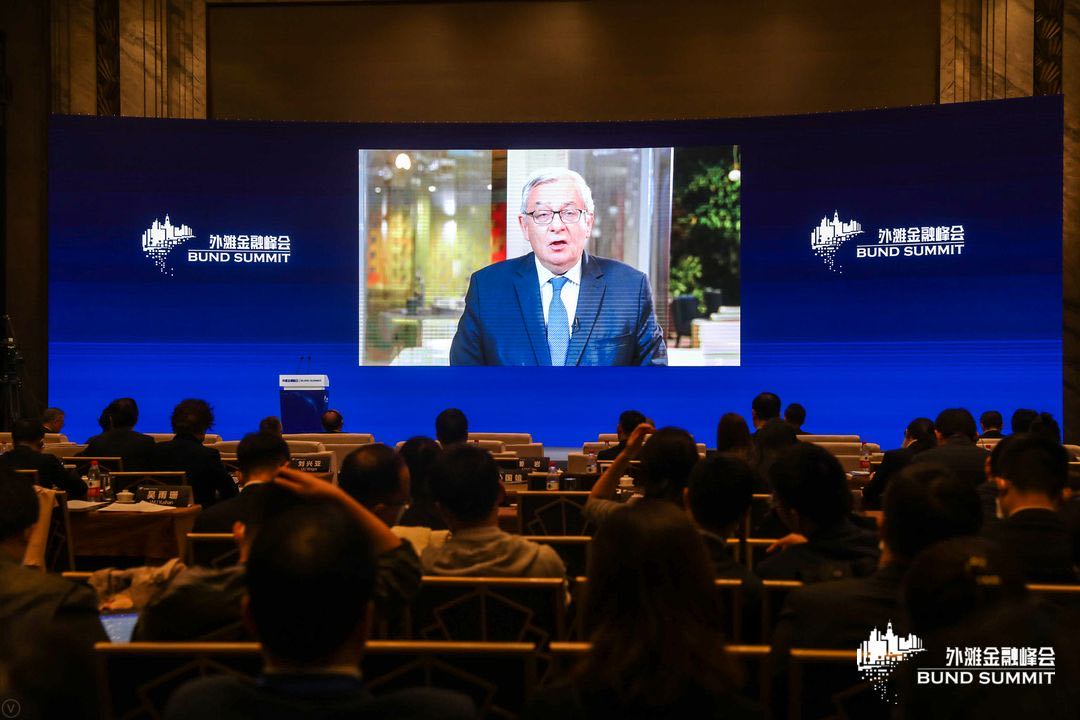
Lemierre said that the digital transformation of the banking industry had already been under way before the COVID-19 pandemic and had been enhanced by the crisis. He noted that as people gradually got used to the new lifestyle of working remotely and wanting services without direct contact, the digital transformation would be a priority for the banking industry.
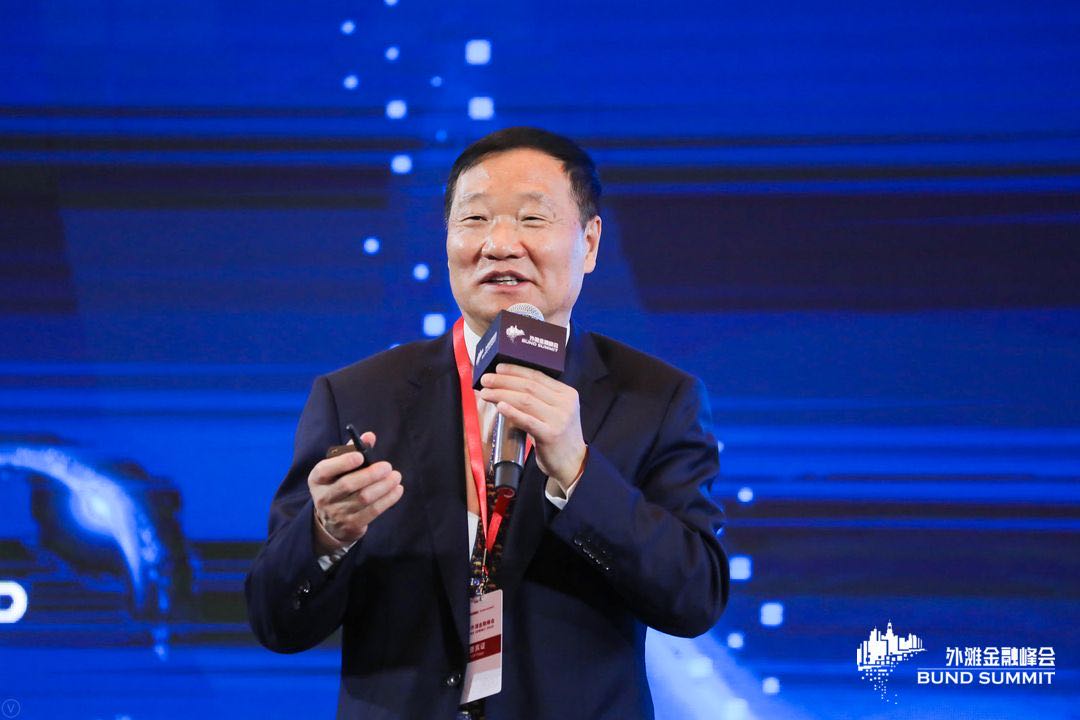
General Assembly III also featured the release of a report titled “Innovation and Regulation of Digital Finance - Building a Forward-looking and Balanced International Regulatory Framework” led by Xiao Gang, CF40 Senior Fellow and former Chairman of China Securities Regulatory Commission.
Moderated by Liu Chunhang, Director-General of Statistical Information and Risk Monitoring Department of China Banking and Insurance Regulatory Commission, General Assembly IV took place in the afternoon focused on “Digital Currency, Fintech and Inclusive Finance”.
Keynote speakers of this session included Shang Fulin, Chairman of the Committee for Economic Affairs of National Committee of the CPPCC and Former Vice Chairman of China Banking Regulatory Commission, Sun Tianqi, Director-General of the Financial Stability Bureau of PBOC, Mu Changchun, Director of Digital Currency Institute of PBOC, Zhang Wenwu, Vice President of Industrial and Commercial Bank of China, Jane Hume, Assistant Minister for Superannuation, Financial Services and Financial Technology in Australia, Beno?t C?uré, Head of BIS Innovation Hub and member of BIS Executive Committee, Frederic Oudea, Chief Executive Officer of Societe Generale, He Dong, Deputy Director of Monetary and Capital Markets Department of the IMF, and Tom Mutton, Director of Fintech at Bank of England.

Applauding the development of Fintech in China in recent years, Shang said that Fintech had also increased the interconnectedness within and the cyclicality of the financial system. He put forward four suggestions to improve the role of Fintech in boosting economic and social development – first, stick to the principle that Fintech has to serve the real economy; second, Fintech should be inclusive; third, prevent financial risks to lay solid foundation for the development of Fintech; fourth, accelerate the pace of Fintech regulation.
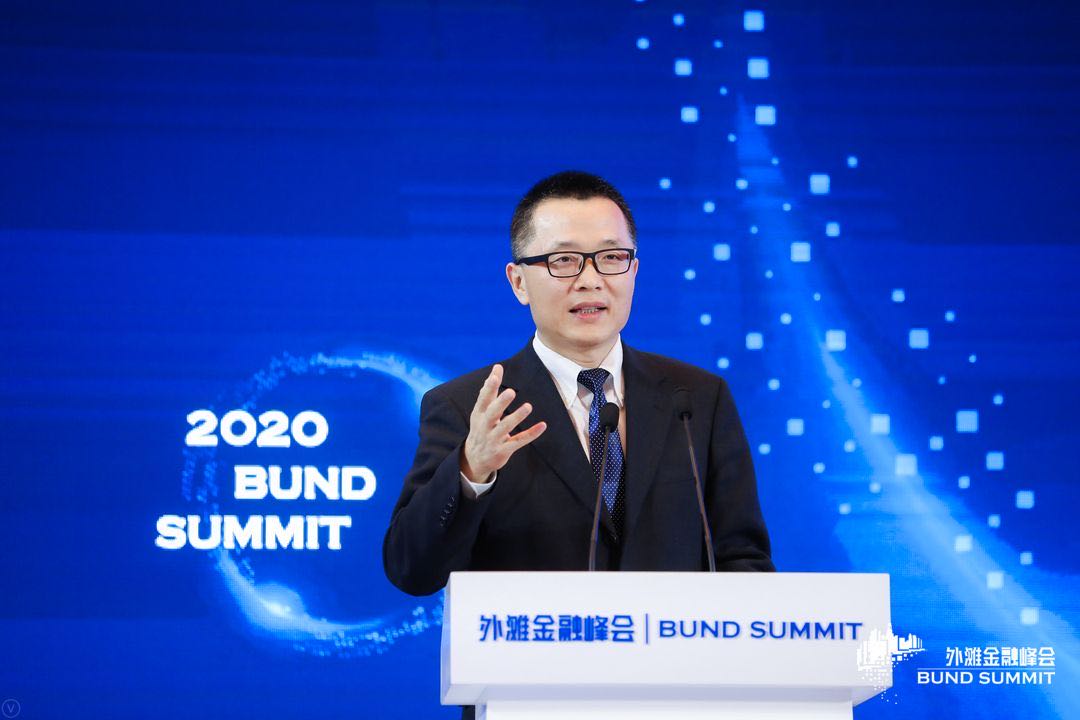
Sun said that it was important to understand both the positive and negative impact of digital finance and Fintech on micro and macro prudential regulation, behavioral regulation, and deposit insurance etc. According to Sun, Fintech could help improve financial stability in the long run by reducing information asymmetry, improving financial efficiency and boosting competition, and digital finance will bring new challenges and tasks for financial regulation.
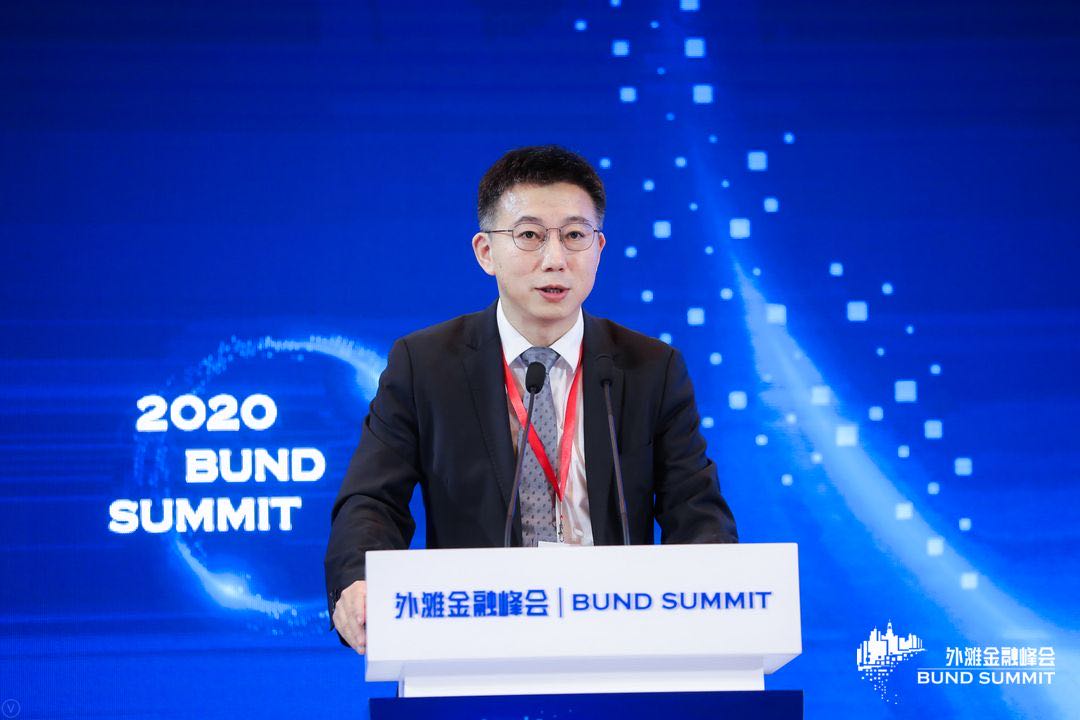
Mu talked about China’s central bank digital currency (CBDC) and explained a series of issues associated with its application and issuance. According to Mu, CBDC is only a kind of payment instrument and will not compete with third party payment platforms like WeChat and Alipay. Also, while CBDC can be circulated among third party payment platforms, the conversion of CBDC can only happen between the central bank and commercial banks. He also said CBDC should be inclusive and convenient enough to serve digitally disadvantaged groups.
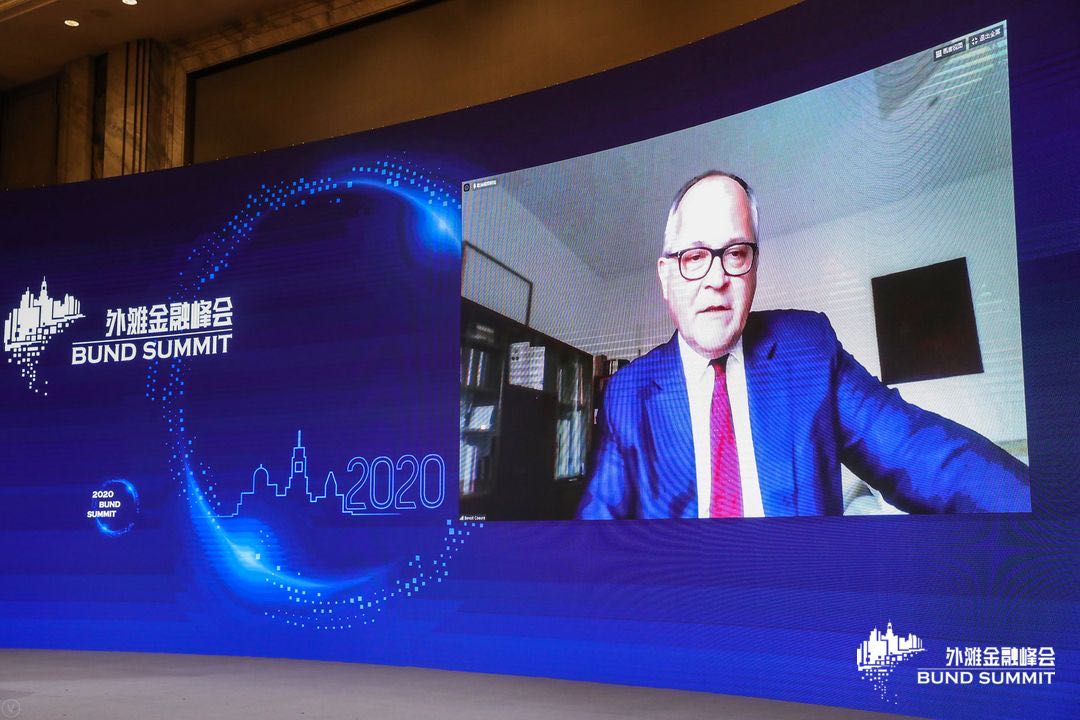
C?uré explained why central banks are stepping up cooperation on CBDC. He said that CBDC is more than just another way to pay; it could be the “evolutionary foundation for new publicly accessible platforms to encourage diverse ecosystems of banks and Fintechs, avoiding ‘winner takes all’”. He stressed that “CBDC will not usher in an age of prosperity or solve a raft of societal issues, but might be a way of achieving a more inclusive, accessible, safe and convenient form of money, and, if developed astutely, provide a new form of global public good.”

According to Oudea, although the COVID-19 pandemic crisis has changed to some extent the adoption of digital technology in Europe, it is still far from Asia in this regard. But he noted that digital transformation in Europe had already started a long time ago, to which technology and innovation would be key for businesses to bring more value to clients.
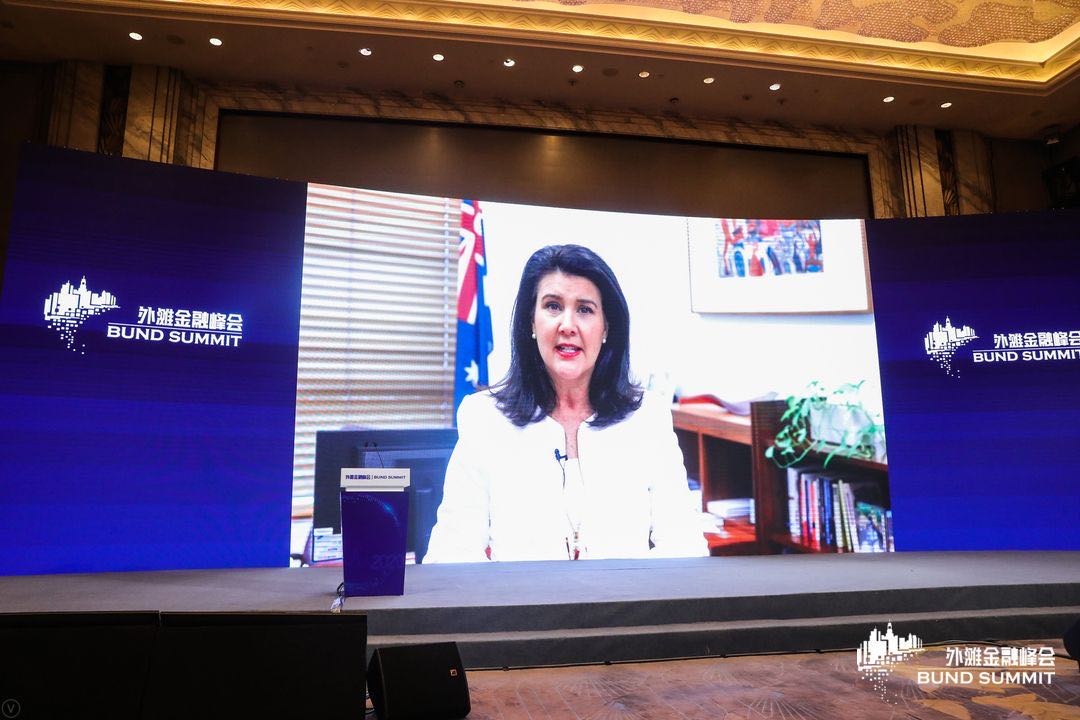
Hume provides an Australian perspective on what the COVID-19 pandemic means for the future of Fintech. She said that as COVID-19 puts up barriers to physical interactions, Fintech can connect people globally and will help lead economic recovery.

He Dong introduced some of the work the IMF had been doing on CBDCs and its macro-financial implications. According to He, CBDC on its own is not likely to change fundamentally the current international monetary landscape “if other fundamental factors that determine the status of an international currency do not change.” He also noted that the main policy challenge from the international use of CBDCs is “how to preserve monetary and financial stability without forgoing the benefits of more efficient cross-border payments and better access to international capital markets.” And to cope with the challenge, close cooperation among countries and a strong and persistent commitment by the international policy community will be required.

Mutton talked about why Fintech matters and discussed how innovation has helped the economy respond to the shock of COVID-19 and the importance of right regulation. According to Mutton, the benefits of Fintech includes improving financial stability, monetary stability, enhance safety and soundness of financial firms, boost competition, promote economic growth etc. Meanwhile, for the benefits of innovation and Fintech to endure, regulation will be needed to promote stability, protect consumer, and facilitate competition. He also pointed out several things which will be helpful to the launch of retail CBDC, e.g. CBDC must have a clear use case, should complement other forms of money, must be “no harm” to monetary and financial stability, and privacy must be preserved etc.
General Assembly IV also featured the Fifth Fintech Innovation Awards Ceremony.
Cloud Sessions
Running alongside the general assemblies at the 2020 Bund Summit were six cloud sessions, all live broadcasted online.
Cloud Session I, themed “Review and Prospect: Development of Shanghai as an International Financial Center”, took place on the evening of October 23rd. Since the beginning of this year, the COVID-19 pandemic has seriously disrupted global economy and finance, but the development of Shanghai as an international financial center has made steady advances against the headwind. Against this backdrop, this session brought together policymakers and scholars to assess the progress that the city has made in the past 30 years, and probe into the weaknesses that it should overcome to enhance its core competitiveness and catch up with other financial centers.

The session heard the voices of six renowned panelists, including Tu Guangshao, Executive Chairman of the Bund Summit Organizing Committee, and former Vice Mayor of Shanghai, Wang Jiang, Mizuho Financial Group Professor at the MIT Sloan School of Management, Wang Xin, Director-General of the Research Bureau at the People’s Bank of China (PBOC), Jin Penghui, Vice President of the PBC Shanghai Head Office and President of PBC Shanghai Branch, Alderman William Russell, Lord Mayor of the City of London, and Mark Wang, President of the HSBC Bank (China) Co., Ltd.
During the session, Lord Mayor Russell shared the experience of London, a traditional and long-recognized international financial center, in supporting global recovery from the pandemic and explored its potential cooperation with China in the field of green finance and digital innovation. Jin Penghui then looked back on the progress Shanghai had made so far, but went further to point out that several weaknesses remained to be addressed, including the underdeveloped insurance and capital market, inadequate product varieties, and the lack of participation by foreign players, among others. Tu Guangshao shared his understanding of “restarting” Shanghai’s journey toward an international financial center, and discussed how this can enable China to play a better role in the allocation of global financial resources and contribute to world economic growth. To this end, he suggested deepening financial reform, expanding opening-up, and giving Fintech a better play, which was complemented by Mark Wang who stressed the importance of creating sound commercial environments. Wang Xin underlined the unique competitive edges of the city and added further advice, with a special mention of green finance and its interaction with Renminbi internationalization, which echoed Lord Mayor’s viewpoints. He Jianxiong, former Executive Director for China at the International Monetary Fund (IMF), moderated the first cloud session.
Cloud Session II on the evening of the Oct 24th, revolving around the topic of “China’s Financial Opening: Policy Magnitude and Market Expectations”, was moderated by Liao Min, Member of CF40 Academic Committee, Deputy Director of the Office of the Central Financial and Economic Affairs Commission and Vice Minister of Finance of China. In recent years, amid increasing complexities in the international environment, China has significantly accelerated opening-up of its financial sector. To better understand how foreign financial institutions feel about the progress and their expectations, Dr. Xu Qiyuan, Director of CF40’s research department, released the Bund Summit Report on Financial Opening-up 2020: Bridging the Gap between Policy Intentions and Outcomes at the beginning of the session, which served as a framework guiding the panel discussion on to how China can deepen financial opening to foster new advantages in international cooperation and competition.

The report release ushered in a heated discussion among leading financial executives, including John Waldron, President and Chief Operating Officer at the Goldman Sachs Group, Inc., Noel Quinn, Group Chief Executive of HSBC Holdings, Bill Winters, Group Chief Executive of Standard Chartered PLC, and Jacques Ripoll, CEO of Credit Agricole Corporate & Investment Bank, who were joined by Zhu Jun, Director-General of the International Department at the PBOC.
In his briefing of the Report, Xu Qiyuan called for increased localization of foreign institutions to better adapt to the Chinese market. He concluded that foreign banks should participate more actively in the discussion of relevant qualification standards, while on the other hand, regulatory authorities need to give more opportunities to these foreign players.
His insights were echoed by the executives. Bill Winters stressed that foreign participants should fully embrace the domestic opportunities within China, and reiterated Standard Charter’s unwavering commitments to the Chinese market despite the challenging times. John Waldron put forward several suggestions on how to deepen the Chinese capital market and level up its quality, including promoting outward fund flows, allowing more participation by foreign institutions in the Chinese bond market, and aligning China’s standards with the international ones, supplemented by Jacques Ripoll who called for eased and streamlined licensing rules. Zhu Jun, from the standpoint of a policymaker, highlighted three principles in China’s financial opening drive which are fair competition, internationalization of the financial market, and the development of a more mature, law-based financial system.
Compared with these two sessions that concentrated on the Chinese economy, the rest of the cloud sessions adopted broader perspectives, each focusing on an important topic in the current world economy. Cloud Session III on the evening of October 24th was themed “Restarting the Global Economy: Fiscal and Monetary Policy Coordination”, centering on the massive monetary easing across advanced economies since the outbreak of the pandemic. Bai Chong-en, Dean of the School of Economics and Management at Tsinghua University, served as the moderator.

Pooling together panelists experienced in economic policymaking from different blocs around the world including Kevin Warsh, Shephard Family Distinguished Visiting Fellow in Economics at Hoover Institution and former member of the Board of Governors of the Federal Reserve, Zhang Xiaohui, CF40 Nonresident Senior Fellow and Dean of the Tsinghua University PBC School of Finance, Liu Shangxi, President of the Chinese Academy of Fiscal Sciences, Claudio Borio, Head of the Monetary and Economic Department at BIS, and Gao Shanwen, chief economist at Essence Securities, this session witnessed profound exchange of ideas with regard to the effectiveness and implications of the intensive easing moves, the role that fiscal policy and monetary policy should play in reopening the economy, and their coordination.
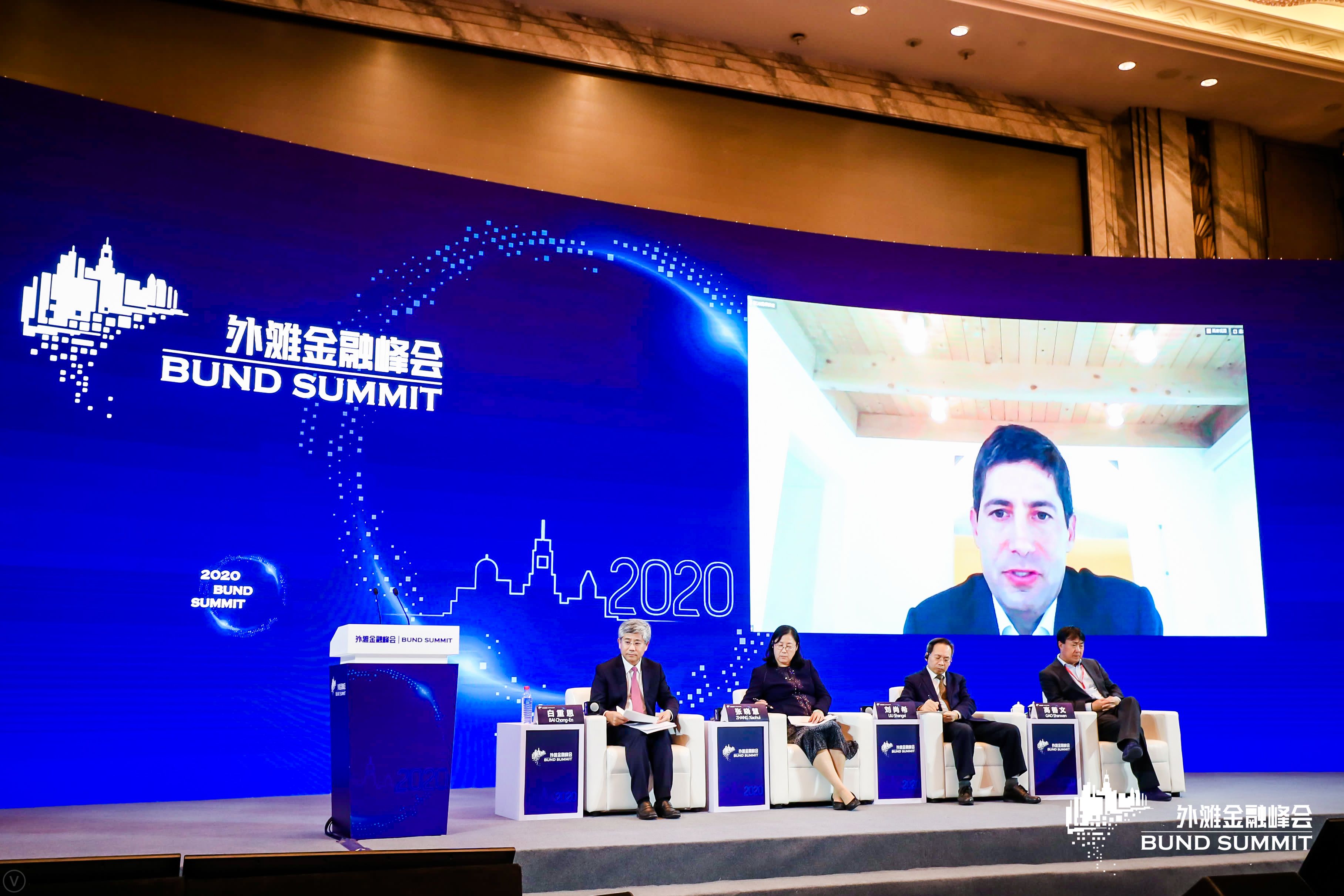

Each of the panelists shared their insights from unique perspectives. Kevin Warsh pointed out the importance of regulation and supervision on the micro level, and estimated that given the limited role that further QE endeavors by a single country can play, only when countries coordinate their rate cut efforts can they achieve desirable outcomes and support the economy. Claudio Borio directed attention to the mounting debts across the world that could incur huge uncertainties, and recommended to give better play to fiscal policy considering the weakened effectiveness of monetary policies. Liu Shangxi believed that it’s time to extend the coordination between fiscal and monetary policies beyond the traditional frameworks into a deeper level to fully tap into their potential in countering the pandemic’s blow. Zhang Xiaohui warned against the imbalance between central and local government bonds in China, while Gao Shanwen reminded that China should close the loopholes in its monetary and fiscal policy coordination to provide more targeted support for those most in need.
The next cloud session on the evening of October 25th saw exchange among panelists on the “Development and Regulation of Central Counterparties in the Era of COVID-19”. Having received support from the Shanghai Clearing House in its organization, it was moderated by Andy Ni, General Manager of the Risk Management Department at the Clearing House and Co-Chair of the CCP12 Operations Working Committee.

Since the pandemic broke out, the central counterparties clearing mechanism (CCPs) has obtained fresh experiences and carried out new research on business continuity, response to extreme market situations, liquidity arrangement for clearing house members, implementation of supporting policies, and coordination of cross-border supervision. In this context, Cloud Session IV invited practitioners with related expertise to discuss the opportunities and challenges facing the development and regulation of CCPs. They include Xie Zhong, Chairman of the Shanghai Clearing House, Teo Floor, CEO of CCP12 at the Global Association of Central Counterparties, Daniel Maguire, CEO of LCH Group and Group Director of the Post Trade Division at LSEG, Ananda Radhakrishnan, Vice President of Bank Derivatives Policy at the American Bankers Association, and Patrick Pearson, Head of Unit of Financial Markets Infrastructure at the European Commission.
The panelists enjoyed rich communications on the major challenges brought about by the COVID-19 outbreak, and the clearing houses’ moves amid the pandemic’s impacts to stabilize the financial market, touching upon factors such as business continuities and liquidity and risk management. According to Daniel Maguire, the COVID-19 crisis produced unprecedented turbulences and pressure in the financial market, especially the securities market, and LCH Group has been preoccupied with maintaining the normal functioning of the market and providing stabilities for its customers. Xie Zhong said that the pandemic had laid in front of us two tests - how to keep the economic system running and sustain business operations, and whether we have adequate risk resources to flatten the turmoil as a result of price fluctuations, while Ananda Radhakrishnan also indicated that resources for recovery was something worth further discussion. Patrick Pearson shared the European Union’s experience in the regulation of CCPs, emphasizing that it’s crucial to guard against systematic financial risks, and drew attention to the importance of digital operations. The experts also envisioned future trends in CCP regulation and offered suggestions for further improvements.
The parallel Cloud Session V gained support from Shanghai Gold Exchange, and was themed “Glittering of London, New York & Shanghai Gold: Endeavoring to Build a Brand-new Global Gold Market”. The moderator was the Exchange’s Vice Chairman, Song Yuqin.

Amid unprecedented financial turbulences and heightened geo-political and economic uncertainties, how should China continue to press ahead with the opening-up of its gold market, and how can London, New York and Shanghai work constructively together to break new grounds for the global gold market? In response to these pressing challenges, this cloud session gathered leading practitioners in this field for in-depth dialogues, including Jiao Jinpu, Chairman of the Shanghai Gold Exchange, Paul Fisher, Chairman of LBMA, Derek Sammann, Senior MD and Global Head of Commodities & Options at Chicago Mercantile Exchange (CME), David Tait, CEO of the World Gold Council and Jerry Zhang, CEO of Standard Chartered Bank (China) Limited.
Jiao Jinpu called for increased consensus and effective interaction mechanisms between the gold exchanges in London, New York and Shanghai to share opportunities and work together to deal with the common challenges, particularly mentioning that China needed to engage more actively in global financial governance and boost market innovation. Paul Fisher highlighted the importance of responsible gold purchase, and voiced optimism regarding the cooperation between LBMA and the Shanghai Gold Exchange in formulating global standards for gold transactions. Derek Sammann expressed ideas similar to that of Jiao Jinpu in saying that cooperation between the three major gold exchanges would mean a lot to ensuring the efficiency of the global gold market. David Tait envisaged a deeper, more liquid and more transparent Chinese gold market with increased convenience and lower costs for transactions, which he believed would benefit the whole world. Jerry Zhang proposed that the Shanghai Gold Exchange needed to promote the listing of its ETF products, called for increased integration of the Chinese and the international gold markets, and observed the new opportunities brought about by the digitalization trend.
The last cloud session that took place on the same evening spun around the topic of “Opportunities for Digitalization of Financial Institutions in the Post-pandemic Era”. In light of the significant role that digital economy has played in stabilizing the macroeconomy during the pandemic and the importance of digital transformation of financial institutions, this session was convened to discuss how to use digital technology to improve financial services, effective regulation and management of such technologies, data privacy, and other related issues.
Joining the discussions were Li Fu’an, Chairman of China Bohai Bank, Lisa Hunt, Chair Emeritus of the Securities Industry and Financial Markets Association and Executive Vice President of the International Services and Business Initiatives at Charles Schwab, Toshiyasu Iiyama, Head of China Committee at Nomura Holdings and Executive Vice President of Nomura Securities, Forest Lin, Corporate Vice President of Tencent Holdings Limited, Jerry Zhou, Chairman and CEO of Huifu Payment, and Li Yutao, CIO of Industrial Securities. Liu Xiaochun, Vice President of Shanghai Finance Institute, moderated the discussion.

According to Li Fu’an, many of the Chinese banks have already embarked on the path of digitalization, best proved by the fact that the combination of online and offline models in offering client services has become quite normal. He said that digitalization had benefitted Chinese banks at least in terms of customer acquisition, risk assessment and customer experience, but also reminded that with the increasing application of 5G technologies, banks would have to strike a balance between the myriads of data and these data’s fragmented distribution, while improving data privacy and compliance with applicable laws and regulations.
Lin Haifeng explored how to make the most out of banks’ digitalization to address the pain points of the financial sector, improve efficiency and create greater value for customers. Zhou Ye discussed the concrete gauges to evaluate the digitalization of financial institutions, and pointed out that amid this transformation, banks needed to foster new cultures and operation models such as virtual teamwork. Li Yutao believed that banks needed to select a tailored, suitable path that was built upon data capacities, accommodated to their unique business strategies, centered on customer services, and compliant with related laws and regulations. He advised banks to develop three wealth management ecologies, focusing on retail customers, institutional customers and fintech capabilities respectively.
Echoing Li Fu’an’s concern with data privacy, Toshiyasu Iiyama stated that as financial institutions digitalize, investors would have stronger demands for privacy protection and services of higher quality; meanwhile, they would want to place greater trust in these institutions. He thought that investment advisory services needed to be more personalized and delivered based on the combination of online and offline models as that would boost customers’ trust. Lisa Hunt recalled that decades ago, many bank operations were performed in a labor-intensive manner, but empowered by digital technologies. Financial institutions are now much more capable of serving their customers in an innovative and efficient way, which have given them more time and energy to go back to their business strategies and devise better products and solutions.
The six cloud sessions attracted 13.947 million viewers online.